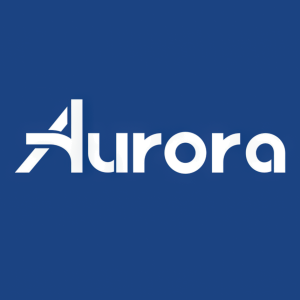Research: Autonomous Trucks Can Reduce Emissions and Fight Climate Change
A white paper from Aurora Innovation examines how autonomous trucking technology can increase energy efficiency and reduce emissions in the freight and logistics industry
Transportation is a Significant Source of Emissions
Transportation makes up approximately
Autonomous Trucking Technology Can Help Fight Climate Change
There is a need for new technologies that reduce freight transportation’s negative impact on climate change. As Aurora advances toward driverless commercial operations, the company has examined ways to maximize the environmental benefits of autonomous trucks. The white paper identifies seven opportunities to use autonomous trucking to make freight transportation more energy efficient, including*:
-
Optimizing Highway Speeds: Autonomous trucks are not limited by hours-of-service restrictions, meaning there is less incentive to drive at high speeds to reach their destination faster. This enables lower speed driving that consumes less fuel per mile. Aurora’s approach of driving 65 mph instead of 70-75 mph on the highway could reduce highway fuel consumption by
9% -17% . -
Limiting Idling: Today’s trucks often consume fuel by idling when drivers take breaks to rest, eat, or relax between hauls. This represents
4% -9% of fuel consumption. While autonomous trucks cannot completely eliminate idling, they could better maximize driving time. -
Eco-Driving: Significant automotive energy usage comes from inefficient acceleration and braking. Autonomous trucks are capable of eco-driving – strategically optimizing acceleration, braking, and coasting to increase energy efficiency and reduce fuel consumption. One study cited in the white paper found increased strategic coasting could lead to
9.5% fuel savings. - Traffic Reduction: Because autonomous trucks can operate nearly 24 hours per day, they can shift a greater proportion of freight to off-peak driving hours. Not only would this reduce autonomous trucks’ fuel consumption by decreasing time stuck in traffic, shifting a portion of truck traffic to off-peak hours would help reduce congestion and fuel consumption for other vehicles.
Additionally, the white paper explains how the introduction of autonomous trucks into the supply chain can be a longer-term catalyst for accelerated adoption of next-generation powertrains, like battery electric and hydrogen fuel cell platforms, given the following:
- Faster Return on Investment: New powertrains will likely have higher upfront costs, and the lower operating costs and higher utilization of autonomous trucks could enable faster returns on those investments.
- Better Range Management: Because autonomous trucks are not restricted by hours-of-service limitations, they can better manage range and charging/fueling limitations of next-generation platforms.
- Fixed Routes: The fixed route model of deploying autonomous trucks supports focused installation of charging/fueling infrastructure along these routes.
Aurora is Developing Safe, Efficient, and Sustainable Autonomous Trucks
“As autonomous trucks make hauling freight safer, we have a responsibility to make logistics more sustainable as well. Self-driving technology can fight climate change by increasing energy efficiency and reducing emissions in the supply chain,” shared Garrett Bray, the author of the white paper.
For carriers, autonomous trucks’ more efficient fuel consumption could reduce operating costs, and reductions in emissions would help meet federal and state environmental regulatory mandates. For more information on how Aurora prioritizes safety and efficiency, visit www.aurora.tech.
*The fuel consumption metrics for optimizing highway speeds, limiting idling, and eco-driving are not additive, and are independent of the autonomous trucking energy efficiency calculation included at the top of this press release. More information on these metrics can be found in the white paper.
About Aurora
Aurora (Nasdaq: AUR) is delivering the benefits of self-driving technology safely, quickly, and broadly to make transportation safer, increasingly accessible, and more reliable and efficient than ever before. The Aurora Driver is a self-driving system designed to operate multiple vehicle types, from freight-hauling trucks to ride-hailing passenger vehicles, and underpins Aurora’s driver-as-a-service products for trucking and ride-hailing. Aurora is working with industry leaders across the transportation ecosystem, including Continental, FedEx, Hirschbach, PACCAR, Ryder, Schneider, Toyota, Uber, Uber Freight, Volvo Trucks, and Werner. To learn more, visit www.aurora.tech.
Cautionary Statement Regarding Forward-Looking Statements
This press release contains certain forward-looking statements within the meaning of the federal securities laws. The words “believe,” “may,” “will,” “could,” “would,” “plan,” “indicate,” “potentially,” “likely,” and similar expressions and variations thereof are intended to identify forward-looking statements, but are not the exclusive means of identifying such statements. All statements contained in this press release that do not relate to matters of historical fact should be considered forward-looking statements, including but not limited to, statements regarding our goals, predictions, objectives, and expected results. Forward-looking statements are based on current assumptions that are subject to risks and uncertainties that may cause actual results to differ materially from the forward-looking statements, including the risks and uncertainties more fully described in our filings with the Securities and Exchange Commission, including our Form 10-Ks, Form 10-Qs and Form 8-Ks filed with the Securities and Exchange Commission. Aurora undertakes no obligation to update or revise publicly any forward-looking statements, except as required by applicable law.
Industry and market data
Unless otherwise indicated, estimates and information contained in this press release concerning our industry and the market in which we operate, including our general expectations, market position, market opportunity, and market size, are based on industry publications and reports generated by third-party providers, other publicly available studies, and our internal sources and estimates. This information involves a number of assumptions and limitations, and you are cautioned not to give undue weight to such estimates. Although we believe the information from the industry publications and other third-party sources included in this press release is reliable, we have not independently verified the accuracy or completeness of the data contained in such sources. The content of, or accessibility through, the below sources and websites, except to the extent specifically set forth in this press release, does not constitute a portion of this press release and is not incorporated herein.
Aurora Overview
Aurora Press Kit
View source version on businesswire.com: https://www.businesswire.com/news/home/20240430871422/en/
Media:
Jake Martin
press@aurora.tech
Source: Aurora Innovation, Inc.







